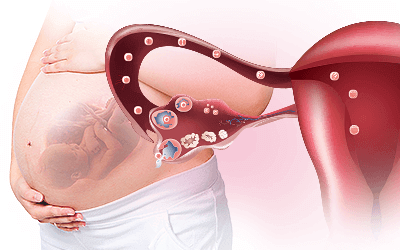
Menstruation is your body's expulsion of the lining of the uterus every 21 to 35 days. The ideal cycle is said to be every 28 days, but only 10 to 15% of women actually menstruate according to that timetable. A woman's cycle and its regularity depend on the function of hormones. Progesterone is one of the three main sex hormones that control many processes in a woman's body and regulate sexual health, the other two being estrogen and testosterone.
Keep reading to learn more about progesterone and its impact on the menstrual cycle.
When Is the Peak of Progesterone Production?
For women with normal menstrual cycles, around the time of ovulation, or the release of a mature egg from the ovaries, is the height of your body's progesterone concentration.
Ovulation is usually about the midpoint of a cycle, if you consider the first day of bleeding day one of your cycle. The reason your body needs so much progesterone at this time is to help thicken the lining of the uterus in preparation for a pregnancy. If you were to become pregnant at this time, your progesterone levels would remain high. But if your egg goes unfertilized, your progesterone levels will begin a steady decline until the onset of menstruation, when your body is at its lowest level.
What Effect Does Progesterone Have on an Irregular Cycle?

The menstrual cycle differs for each woman. However, if you are experiencing a hormonal or progesterone specific imbalance, you may see an irregular cycle develop as progesterone regulates the cycle. If you do not have sufficient progesterone levels, you may not ovulate and will subsequently not have a period.
How Is Progesterone Affected by Estrogen and Testosterone?
The relationship of these three hormones is in a constant state of fluctuation depending on what phase of the cycle you happen to be in. During menstruation, for instance, your body needs a high concentration of estrogen; both progesterone and testosterone are converted into estrogen at this time.
Recommendation
If you are experiencing an irregular period, talk to your doctor about the possible causes and courses of action you can take. Sometimes, the answer is as simple as changing your diet and exercising more. However, some cases are more persistent and may require hormone replacement therapy (HRT). To find out more about other ways to treat progesterone, follow the link below.
